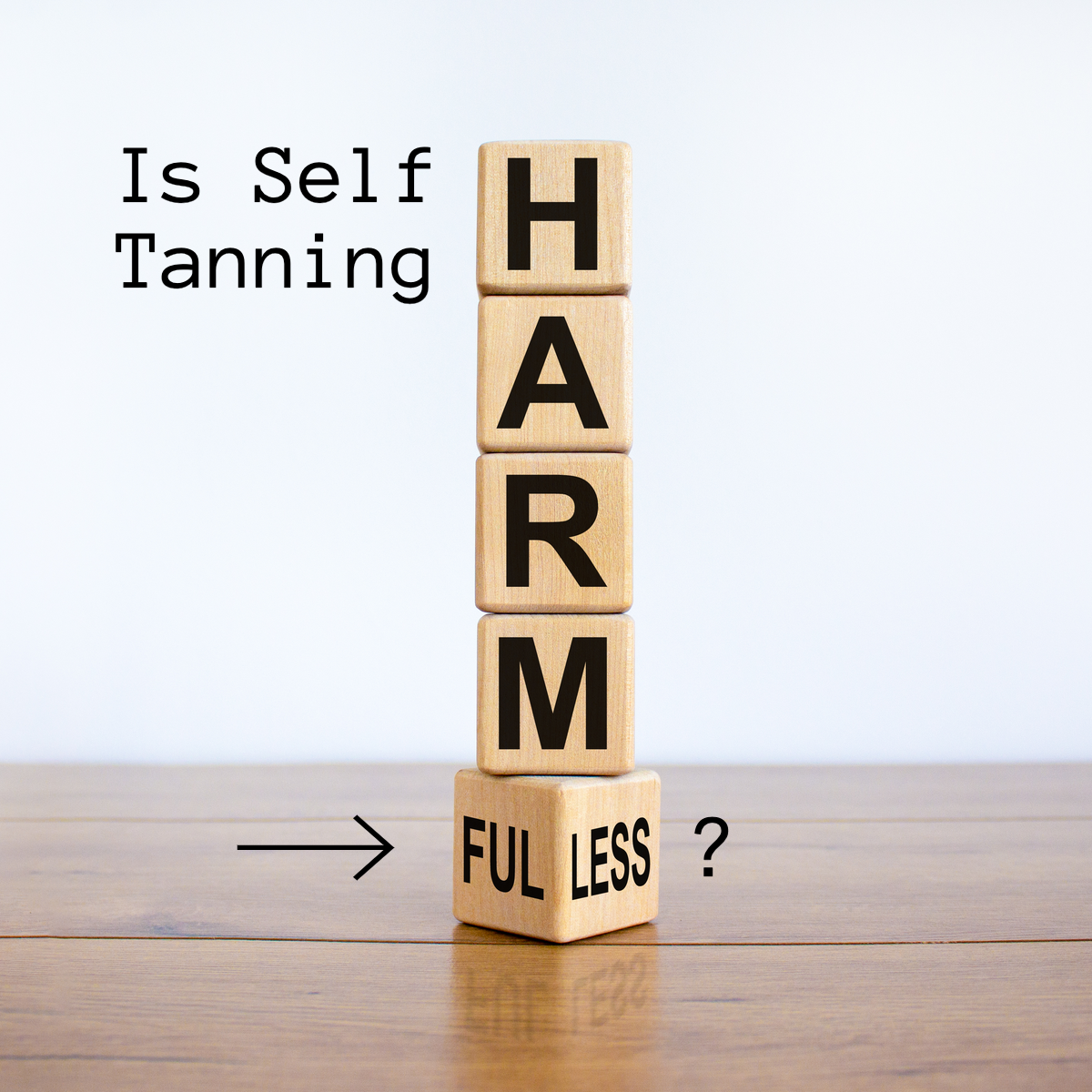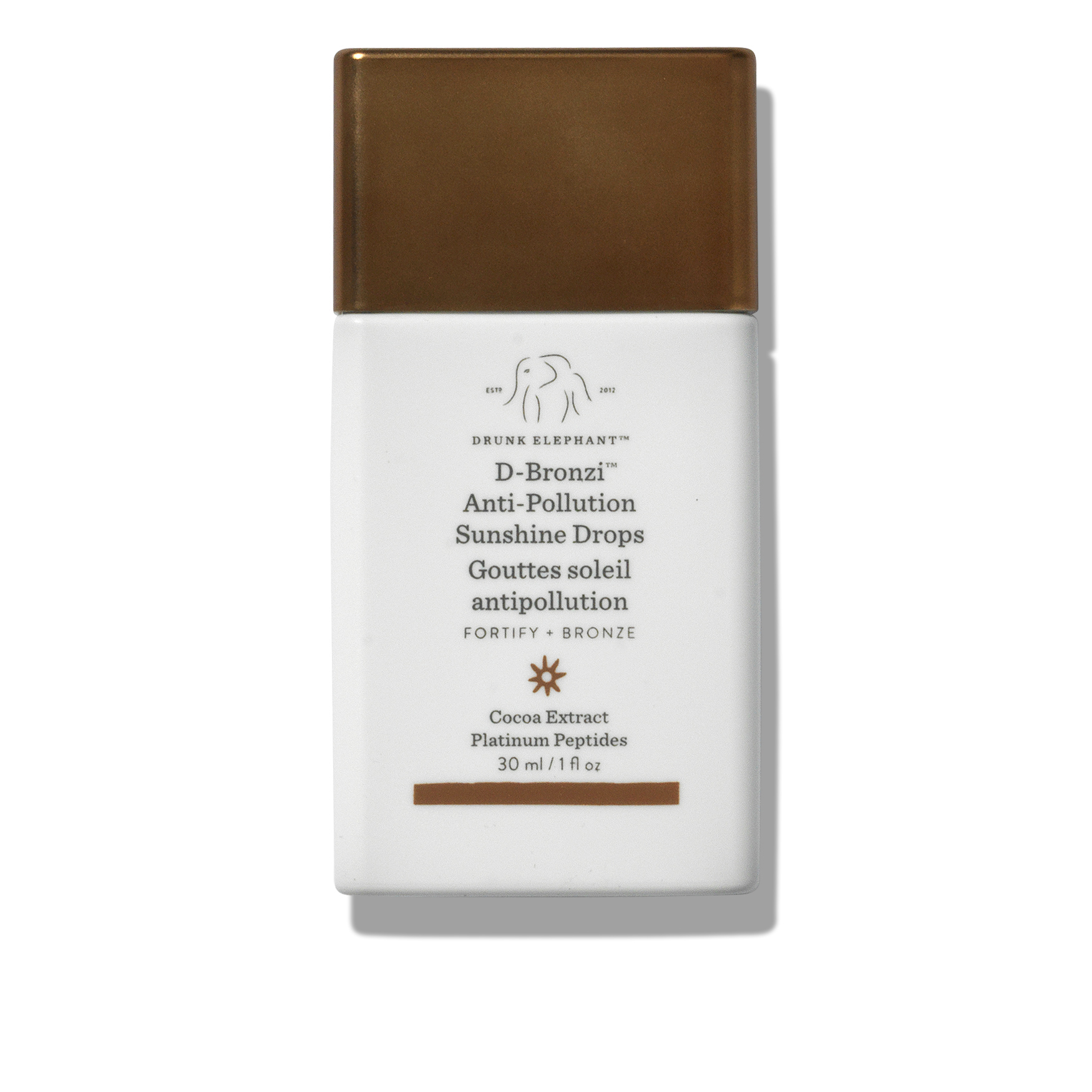
This is NOT the blog post I thought I was going to write.
My intention when I started this article was just to share my personal tips and tricks about how to self-tan. I’ve tried a whole array of products (foam, oil, lotion) and they have been hit or miss on color, longevity, transfer, and smell. You can’t forget smell when you’re talking about self-tanner. I was going to share the application methods I use for quick and even application. I had the whole thing planned out – starting of course with – How Does Self Tanner Work. And for that part, I always do research.
How Does Self Tanner Work?
Dihydroxyacetone (DHA) is active ingredient that makes self-tanners work. It sounds scary, but it’s a simple carbohydrate that is approved by the Food and Drug Administration (FDA) and several other countries for decades. It comes from natural sources like beets and can sugar but can also be chemically derived.
In the 1920s, it was discovered by accident that it browned the skin when it came in contact. This accident wasn’t exploited until the 1970s when the FDA approved it for cosmetic use. DHA interacts with the top layer of your skin in a process called the Maillard reaction. This reaction is part of what produces the distinctive odor associated with self tanners.
While DHA is the primary ingredient used today, there are others in use in the industry, but they all work the same way.
So far that doesn’t sound too bad, does it? So…
Why Is It Bad For Us?
This is when my research took an unexpected and unpleasant turn.
I stumbled across this article from The Skin Care Edit. It was the first time I ever read that self-tanners might not be that safe. But I don’t rest on a single article. I look for the corroborating evidence and scientific studies. Fortunately the article was well notated so I dropped into the rabbit hole.
Increases Free Radicals
Just a refresher, we do not like free radicals. They damage cells, cause illness, and accelerate aging in our skin that we are trying to avoid, and . The research linked in the article referred to a study housed on the National Center for Biotechnology Information (NCBI) under the National Institute of Health (NIH) a common source for a lot of the research articles I use. It was written up in September 2001. Now this study specifically looks at the impact of DHA in mouse skin. It mentions the Maillard reaction in the skin as the trigger for the increased free radical production. Another study in June 2004 also identified cellular damage caused by DHA. A study in September 2020 also notes the cellular impact of using DHA topically on the skin. In March 2021, this paper stressed the need for more investigation on the impact of DHA on our bodies.
The original article from the Skin Care Edit mentions other downsides from DHA but I consider the free radical issue the one of primary importance. Cellular damage can occur as a result of increase free radicals. The vitamin D absorption and potential skin irritation is a secondary concern to whether or not putting this product on our skin is a good idea or not.
Can It Be Made Safe?
Again, citing the Skin Care Edit article, it posits that steps can be taken to minimize or reduce the impact of putting DHA on our skin. I considered including them in my write up in some manner, but it occurred to me that I didn’t want you to take away that we should be looking or loop holes.
At this point I am wary. I don’t want to promote anything that damages us as beings – and I certainly don’t want to use or promote something that accelerates the very signs of aging I’m trying to delay. My biggest disappointment is that the beauty industry continues to push self-tanners and fails to mentions concerns that it’s not really protecting us from aging long term. I’d rather they put their money where their mouth is and invest in more in depth studies to determine if we are HARMING ourselves using these products.
What Are Our Alternatives?
This will stay an open question for me, but for now I’ll take a break from self-tanning until I see more information about the impact of the active ingredient. I think temporary solutions will be my go-to when I feel the absolute need to rock a slightly less translucent look.
Here are a handful of the body bronzers I have used in the past that I like.
Sally Hansen has a nice product I think of as nylons in a can. It’s a spray on make up that is pretty transfer proof and will give yours legs that polished look. I find it easier to apply with a body brush like this. I always wash it off at night before I go to sleep but it’s great in a pinch.
Scott Barnes has a beautiful but VERY shimmery bronzing body shimmer lotion. He created Jennifer Lopez’s bronze shine many years ago and this is perfect for over the top. I found that it tended to transfer a bit, so I would NOT risk wearing it with white. It washes off easily.
Vita Liberata’s Body Blur is one of my new favorites. I have it in my cabinet but honestly it always took a back seat to self-tanners. I think it’s about to come into the spotlight and shine!
Another beautiful bronzing drop that can be added to moisturizer. I find I get light transfer with this one but it is NOT a self-tanner. It washes off at night.
The Bottom Line
I have an arsenal of self-tanning products, as well as body bronzers, sitting in my cabinets. I am attached to the idea of the year round tan. But now I have to really sit and rethink that. I will definitely be leaning a little more heavily on my body bronzers going forward.
My couldn’t-care-less boyfriend simply said “toss them”. It DOES feel like it should be that easy.
What is your reaction to this revelation? Are you as shocked and dismayed as me, or am I just the last to know?
Disclosure: I am a participant in the Amazon Services LLC Associates Program, an affiliate advertising program. Some of these links are affiliate links. If you click a link and buy something, I may receive a commission for the sale. It does not cost you anything extra and you are free to use the link or not. Product purchases for review are made with my own money and my opinions are my own. If product is ever provided or the article is sponsored, it will be clearly noted at the top of the page.



